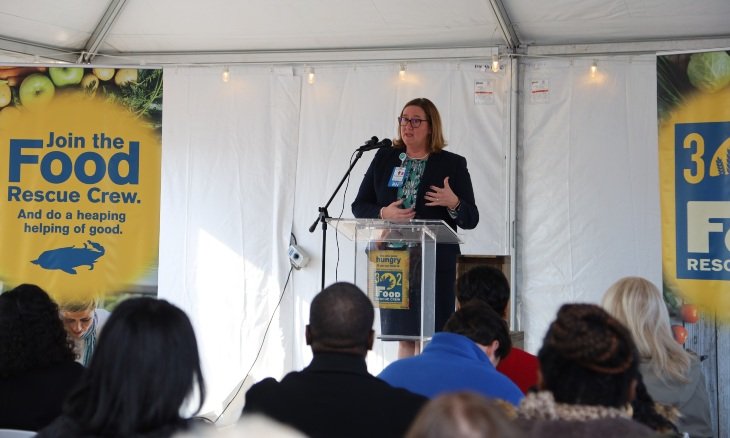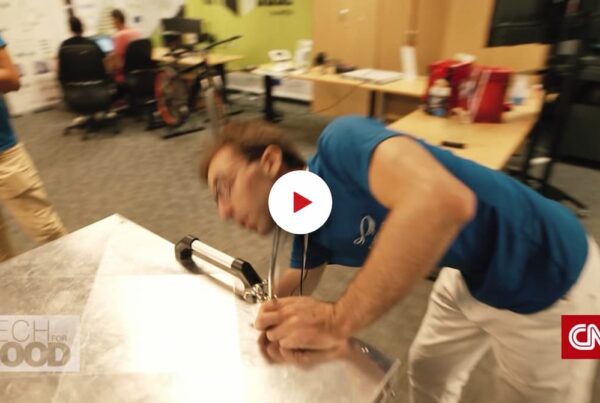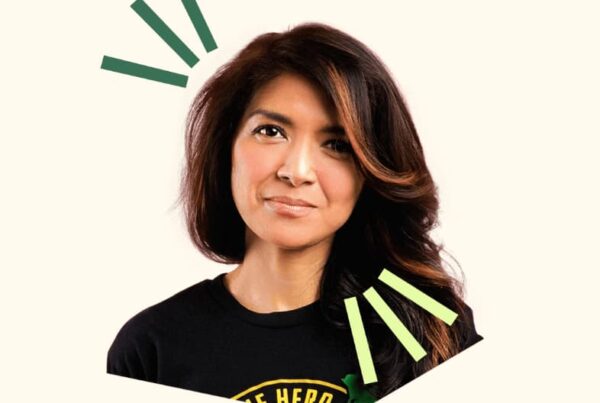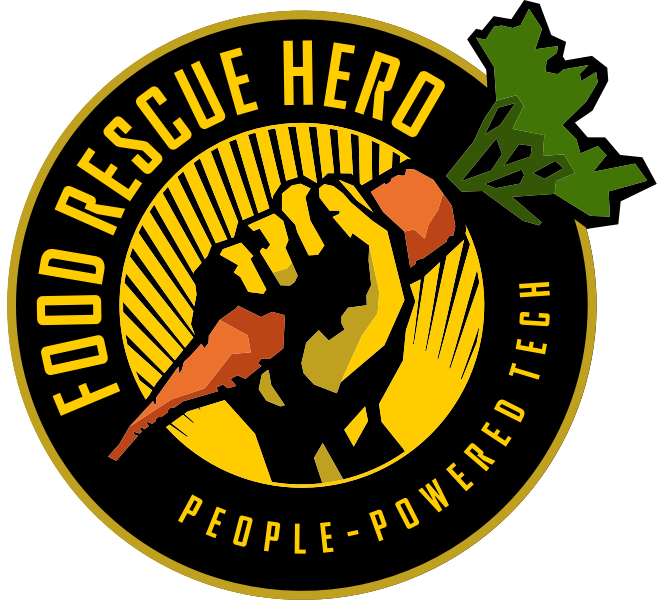In an effort to go beyond food security, health systems are partnering with Food Rescue Hero in a first-of-its-kind partnership to ensure nutrition security, or regular access to fresh and healthful food.
Pittsburgh, Pennsylvania (Tues., Jan. 10, 2023) — For over a decade, health systems in the U.S. have experimented with limited “food as medicine” initiatives, prescribing fruits and vegetables to patients experiencing or at risk for diet-related health complications, and studies indicate that these programs have health benefits (for instance, helping to control type 2 diabetes). But what if a health system went further and actually brought healthy food directly to patients’ neighborhoods? And what if it did so statewide? A groundbreaking program in Delaware is taking on that challenge – and reducing food waste in the process.
Food Rescue Hero® is partnering with Bayhealth, the Food Bank of Delaware and the American Heart Association to combat food and nutrition insecurity across the state of Delaware. The initiative officially launched with an app, powered by the Food Rescue Hero platform, that connects food-insecure people with produce, prepared meals and other healthy food items that would otherwise have gone to waste.
In the U.S., a third of the food that is produced ends up in the waste stream, and a large portion of that food is composed of fresh, perishable items like fruits and vegetables. Meanwhile, produce makes up only 15% of the offerings available at food banks. Food Rescue Hero bridges the gap between nutritious food at risk of going to waste and the communities that need it the most, ensuring that good food feeds people, not landfills.
The Delaware program is the sixteenth partnership for Food Rescue Hero, which collaborates with organizations across the U.S. and Canada, and Food Bank of Delaware is the first Food Rescue Hero partner serving an entire state. In Delaware, in line with the national average, one in ten people are food-insecure.
Patient screenings at Bayhealth hospitals and provider offices across the state have identified food insecurity as a top nonmedical concern among respondents (second only to financial need). Food insecurity is an SDOH (social determinant of health) that the healthcare industry recognizes as a priority. Lacking enough nutritious food to eat puts people at increased risk for heart disease, stroke and other chronic conditions. Food-insecure children may also be at higher risk for developmental problems and mental health concerns.
“Heart disease is the No. 1 cause of death globally, nationally and in Delaware; stroke is the No. 3 cause of death in Delaware,” said David Morris, executive director of the Delaware American Heart Association. “Eighty percent of cardiovascular disease and stroke cases can be prevented by maintaining a healthy lifestyle, and one of these key factors is diet. Nutrition security is a huge focus for us and a great preventive measure to combat cardiovascular disease in the state.”
Nutrition security, a more nuanced counterpart to food security, is consistent access not only to an adequate quantity of food, but also specifically to healthy foods such as fresh produce, proteins and other foods that are low in sodium and sugar — all the foods that are the most difficult to access in food deserts. “Our studies have shown that in southern Delaware you can often get to 20-plus convenience stores or fast-food restaurants before you can reach a grocery store,” said Morris.
Unlike a traditional food bank, Food Rescue Hero focuses on getting fresh, perishable food to people who need it same-day. It’s a similar model to for-profit food delivery companies like UberEats and DoorDash, but at no cost to recipients. When a grocery store or restaurant has food it can’t sell to customers (like ugly produce, day-old bread, or prepared meals that are still good but have a short shelf life), it makes a donation available on the Food Rescue Hero app. The app pushes notifications to registered volunteer users when a food rescue is available to claim near them; once a volunteer claims a rescue, they are guided through the pick-up and delivery of the food to a community agency that can use or distribute it that day.
“The app is volunteer-facing,” explains Victoria Della Rocca, RD, LDN, Food Rescue Hero’s strategic partnership lead. “Just like if you are an Uber driver, you get a notification—bananas need a ride. Maybe for 20 or 30 minutes out of your day, you drive food from the supermarket to a community program. We have a community of over 38,000 volunteers nationally who engage with the app and are jumping in when they can.”
Since 2016 the Food Rescue Hero Network has recovered 126 million pounds of food across North America. “Eighty-seven percent of the food we recover is fresh,” says Jennifer England, Head of Partnerships Development at Food Rescue Hero. “That’s remarkable, because it’s the hardest type of food to access for those in food deserts and for the thirty-five percent of people living in poverty who don’t have access to reliable transportation. Our network brings nutritious, healthy food to over a million people each year. We’re thrilled to be able to serve the state of Delaware through this collaboration.”
This state-wide initiative leverages the Food Bank of Delaware’s existing network of volunteers and food donors (including local restaurants, grocery stores, caterers, hotels, and farms) to connect community centers, shelters and other resource hubs with food that they can pass on to those in need.
This is the country’s first initiative offering food recovery at the statewide level and will pave the way for similar programs in other areas. “This is a serious game-changer for the state,” said Morris. “It’s not only going to save lives here in Delaware, it is going to set an example for others. We are going to reduce the rates of hypertension, diabetes, and ultimately cardiovascular disease and stroke. By consuming healthier foods, people will naturally lead healthier lives.”
###
About Food Rescue Hero®: Purposefully designed to automate the time consuming and variable coordination of food recovery, Food Rescue Hero enables scalable impact on food waste, food insecurity and climate change. Since 87% of the food for pick up is fresh, timely delivery is essential. In the United States, as much as 40 percent of the food produced is wasted while one in five people goes hungry. Food waste is also one of the leading causes of greenhouse gas emissions. Since 2016, the Food Rescue Hero Network, made up of 16 partners in the US and Canada, and a growing community of 39,000 volunteer drivers, has diverted 126 million pounds of perfectly good food from the landfill and mitigated 68.4 million pounds of CO2 emissions. Piloted in Pittsburgh, Food Rescue Hero facilitates partner growth and multi-county expansion, aiming to scale food recovery in 100 cities by 2030 and measurably support the United Nations Sustainable Development Goals 2, 12 and 13.






